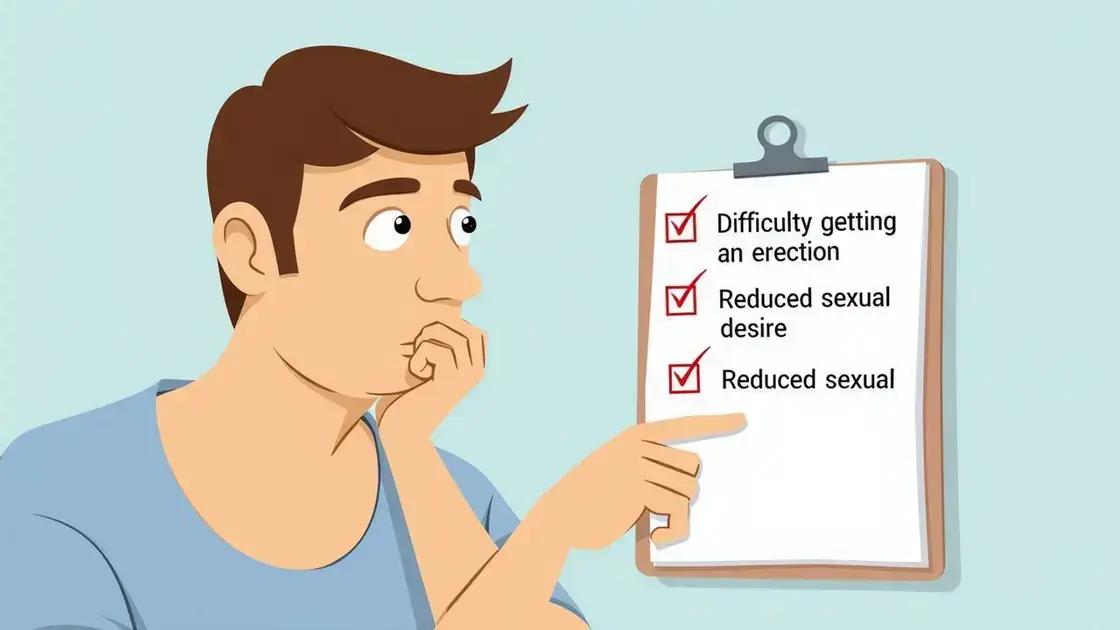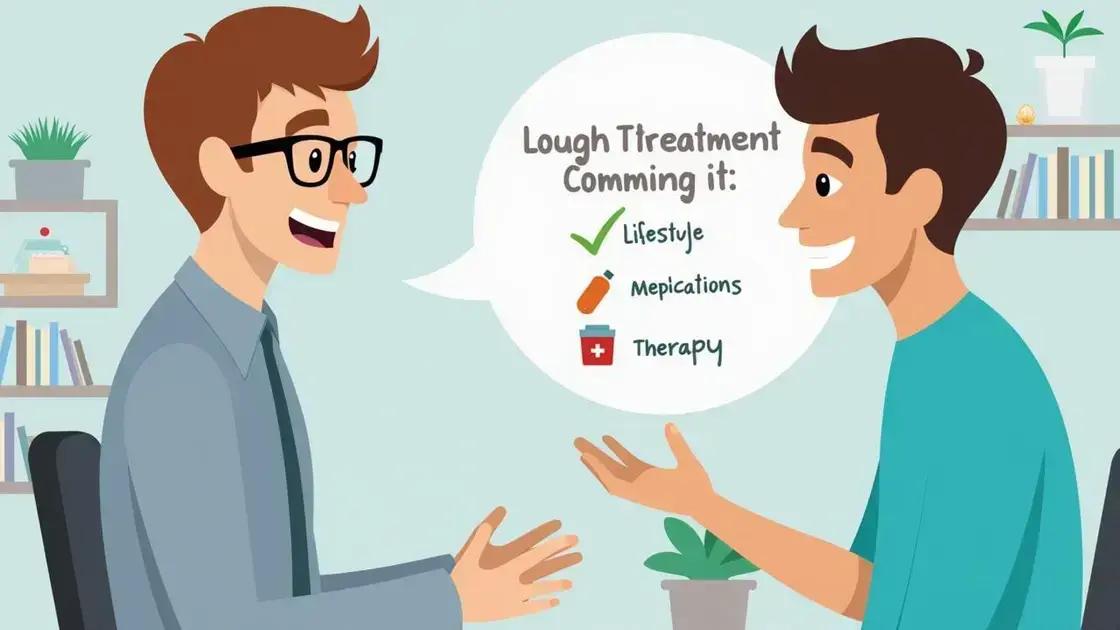Erectile dysfunction can affect younger men due to various factors like psychological issues, medical conditions, and lifestyle choices. Symptoms include difficulty achieving or maintaining an erection and reduced sexual desire. Effective treatments range from lifestyle changes and counseling to medications and vacuum devices. If symptoms persist or cause distress, seeking professional help is crucial for better management.
Erectile dysfunction, often perceived as an issue solely for older men, can also affect younger individuals. Many are surprised to learn that young men can experience this condition due to various factors. In this article, we will delve into the causes and symptoms of erectile dysfunction in younger men, explore the available treatment options, and discuss when it might be necessary to seek help. Understanding this issue is crucial for maintaining both physical and mental wellbeing.
Understanding Erectile Dysfunction

Erectile dysfunction (ED) is a condition that affects a man’s ability to achieve or maintain an erection suitable for sexual intercourse. Although commonly associated with older men, younger men can also be impacted by this issue due to various underlying factors.
What is Erectile Dysfunction?
ED occurs when blood flow to the penis is restricted or when the nerve signals that trigger an erection are disrupted. This can lead to difficulties in getting or keeping an erection. For many young men, experiencing ED can be alarming, but understanding it is the first step toward addressing the issue.
Physical and Psychological Factors
The causes of ED in younger men can be both physical and psychological. Conditions such as diabetes, heart disease, or hormonal imbalances can affect erectile function. Additionally, psychological factors like stress, anxiety, and depression play a significant role. Young men may feel embarrassed, which can worsen the situation.
Importance of Awareness
Awareness about erectile dysfunction is crucial because many young men do not realize they can be affected. Understanding that ED can happen at any age helps diminish stigma and encourages seeking help without shame.
Seeking Help and Support
If a young man experiences persistent issues with erections, it’s important to consult a healthcare professional. Early intervention can help identify any serious health concerns and lead to effective treatment options. Support from partners and education about the condition can enhance coping and healing.
By understanding what erectile dysfunction is and recognizing its potential causes, young men can become empowered to take steps toward managing their sexual health.
Common Causes in Younger Men

When it comes to erectile dysfunction in younger men, there are several common causes that can contribute to this condition. Understanding these causes is vital for addressing the issue effectively.
1. Psychological Factors
Many young men experience erectile dysfunction due to psychological factors. Stress, anxiety, and depression can disrupt sexual function. Performance anxiety about sexual encounters can lead to a cycle of fear and dysfunction.
2. Poor Lifestyle Choices
Poor lifestyle choices, such as smoking, excessive alcohol consumption, and lack of exercise, can significantly affect erectile function. These habits can impair blood flow and lead to overall health issues.
3. Medical Conditions
Certain medical conditions are also contributors to erectile dysfunction in younger men. Conditions such as diabetes, obesity, and high blood pressure can all affect blood circulation and hormonal levels, leading to difficulties in achieving an erection.
4. Hormonal Imbalances
Hormonal imbalances, particularly low testosterone levels, can play a critical role in erectile dysfunction. Testosterone is important for sexual drive and performance, and low levels may lead to issues with erections.
5. Medication Side Effects
Some medications, especially those for anxiety, depression, and high blood pressure, can have side effects that include erectile dysfunction. It’s essential for young men to discuss any concerns about medication side effects with their healthcare provider.
By recognizing these common causes, young men can take proactive steps toward finding solutions and maintaining their sexual health.
Symptoms to Watch For

Recognizing the symptoms of erectile dysfunction is crucial for younger men. Awareness can lead to early diagnosis and treatment. Here are some symptoms to watch for:
Difficulties in Getting an Erection
If a young man frequently has trouble achieving an erection, it may indicate a problem. This can range from consistently failing to get an erection to sometimes having difficulties.
Problems Maintaining an Erection
Even if an erection is attained, struggles in maintaining it during sexual activity can be a symptom of erectile dysfunction. This can lead to frustration and anxiety.
Reduced Sexual Desire
A noticeable decrease in sexual desire or libido can signal underlying issues. Young men experiencing this may find their interest in sexual activities waning.
Painful Erections
Pain or discomfort during an erection is not normal and should be evaluated by a healthcare provider. This symptom can indicate other medical concerns.
Seeking Help for Symptoms
If these symptoms become consistent or troubling, it is essential to seek help. Early intervention can address potential health problems and improve overall sexual health.
Effective Treatments Available

There are several effective treatments available for younger men suffering from erectile dysfunction. These treatments may vary based on the underlying cause and severity of the condition.
1. Lifestyle Changes
Making healthy lifestyle changes can significantly improve erectile function. This includes exercising regularly, maintaining a balanced diet, quitting smoking, and limiting alcohol intake. These changes can enhance overall health and blood circulation.
2. Counseling or Therapy
If psychological factors are contributing to erectile dysfunction, counseling or therapy can be beneficial. A mental health professional can help address issues like anxiety, depression, and performance anxiety.
3. Medications
Several oral medications, known as phosphodiesterase type 5 (PDE5) inhibitors, are prescribed for erectile dysfunction. These include sildenafil (Viagra), tadalafil (Cialis), and vardenafil (Levitra). They work by increasing blood flow to the penis, facilitating erections in response to sexual stimulation.
4. Vacuum Erection Devices
Vacuum erection devices (VEDs) can also be effective. These devices create a vacuum around the penis, drawing blood into it. Once an erection is achieved, a constriction ring is placed at the base to maintain it.
5. Hormone Therapy
If low testosterone levels are identified, hormone therapy may be recommended. This treatment can involve testosterone replacement through injections, patches, or gels, helping restore normal hormone levels.
6. Surgical Options
In severe cases where other treatments haven’t worked, surgical options may be considered. These can include penile implants or vascular surgery to enhance blood flow.
Each treatment option should be discussed thoroughly with a healthcare provider to determine the most suitable approach for the individual.
When to Seek Professional Help

Knowing when to seek professional help for erectile dysfunction is important. If you are a younger man experiencing any of the symptoms discussed earlier, consider these guidelines:
1. Persistent Issues
If difficulties with erections happen frequently or persistently, it’s advisable to consult a healthcare provider. Regular problems may indicate underlying health concerns that need to be addressed.
2. Emotional Distress
If erectile dysfunction is causing significant emotional distress or affecting your confidence, relationships, or quality of life, professional help can provide support and solutions.
3. Health Conditions
Young men with existing health conditions like diabetes, heart disease, or hormonal imbalances should seek help immediately. These conditions can contribute to erectile dysfunction and need proper management.
4. Changes in Sexual Desire
A noticeable decrease in sexual desire can also be a signal to seek help. This change could arise from physical or psychological causes that require professional evaluation.
5. Medication Side Effects
If you are taking medication and suspect it might be causing erectile dysfunction, consulting a doctor is essential. A healthcare provider can review your medications and suggest alternatives if needed.
Taking action by seeking professional help can lead to better understanding and management of erectile dysfunction, ultimately improving sexual health.
Understanding and Addressing Erectile Dysfunction
Erectile dysfunction, while commonly associated with older men, can affect younger men as well. Recognizing the symptoms, understanding the causes, and knowing when to seek help are crucial steps in addressing this condition.
Effective treatments are available, ranging from lifestyle changes to medical interventions, allowing for improved sexual health and quality of life. It’s important for young men to feel empowered to discuss their concerns with healthcare professionals.
By taking proactive steps, individuals can manage and overcome the challenges associated with erectile dysfunction, paving the way for a healthier and more satisfying sexual experience.
FAQ – Frequently Asked Questions about Erectile Dysfunction in Younger Men
Can younger men experience erectile dysfunction?
Yes, erectile dysfunction can affect younger men due to various factors including psychological issues, lifestyle choices, and medical conditions.
What are common symptoms of erectile dysfunction?
Common symptoms include difficulty getting or maintaining an erection, reduced sexual desire, and emotional distress related to sexual performance.
What causes erectile dysfunction in younger men?
Causes can include psychological factors like anxiety and depression, medical conditions such as diabetes, hormonal imbalances, and poor lifestyle habits.
When should I seek professional help for erectile dysfunction?
Seek help if you experience persistent issues with erections, emotional distress, or changes in sexual desire. Consulting a healthcare provider can lead to better management.
What treatments are available for erectile dysfunction?
Effective treatments include lifestyle changes, counseling, medications, vacuum erection devices, hormone therapy, and in some cases, surgical options.
Is erectile dysfunction a serious condition?
While it can be distressing, erectile dysfunction itself is a symptom of potential underlying issues that may require treatment, making awareness and management important.












